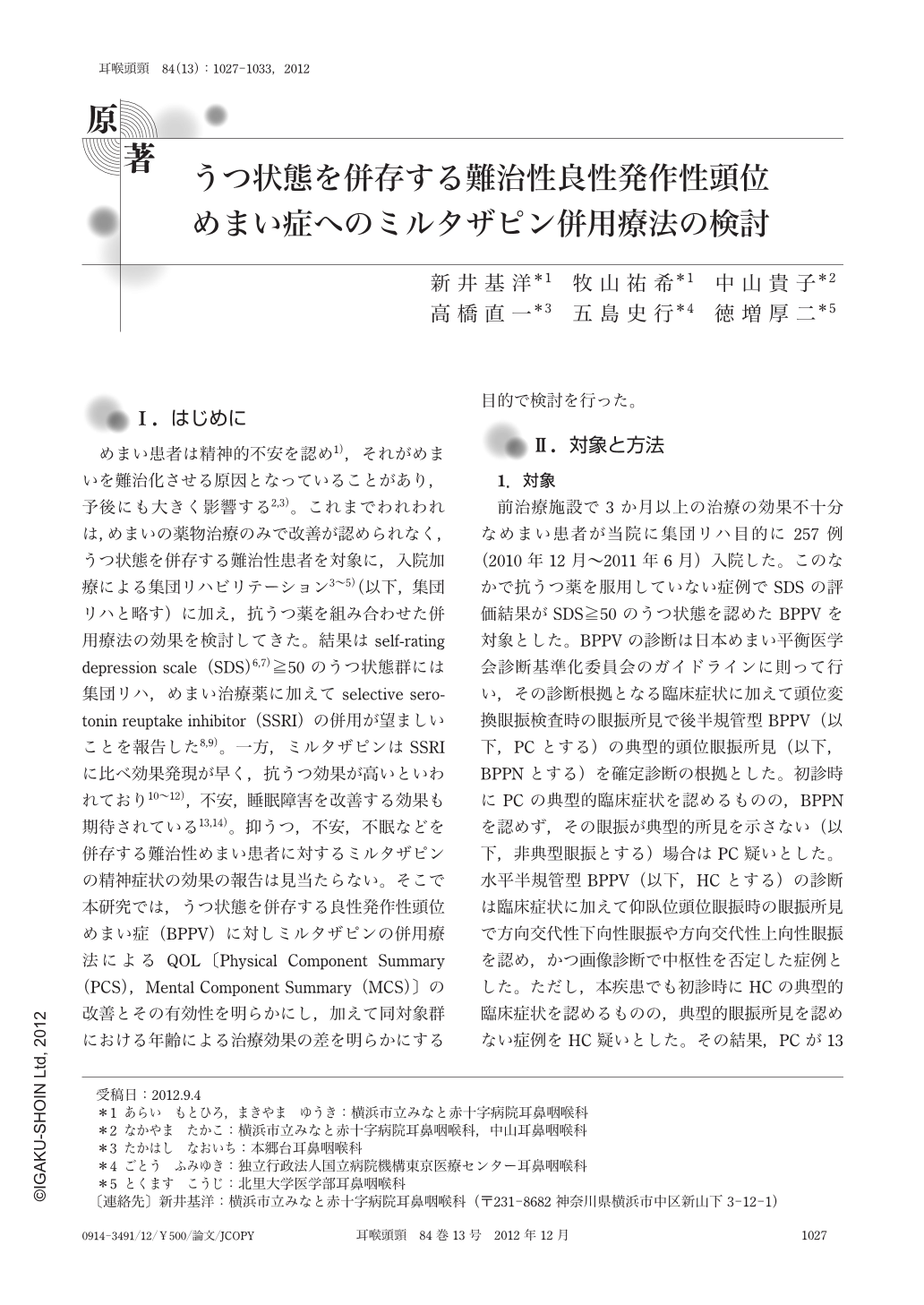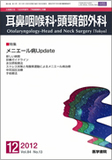Japanese
English
- 有料閲覧
- Abstract 文献概要
- 1ページ目 Look Inside
- 参考文献 Reference
Ⅰ.はじめに
めまい患者は精神的不安を認め1),それがめまいを難治化させる原因となっていることがあり,予後にも大きく影響する2,3)。これまでわれわれは,めまいの薬物治療のみで改善が認められなく,うつ状態を併存する難治性患者を対象に,入院加療による集団リハビリテーション3~5)(以下,集団リハと略す)に加え,抗うつ薬を組み合わせた併用療法の効果を検討してきた。結果はself-rating depression scale(SDS)6,7)≧50のうつ状態群には集団リハ,めまい治療薬に加えてselective serotonin reuptake inhibitor(SSRI)の併用が望ましいことを報告した8,9)。一方,ミルタザピンはSSRIに比べ効果発現が早く,抗うつ効果が高いといわれており10~12),不安,睡眠障害を改善する効果も期待されている13,14)。抑うつ,不安,不眠などを併存する難治性めまい患者に対するミルタザピンの精神症状の効果の報告は見当たらない。そこで本研究では,うつ状態を併存する良性発作性頭位めまい症(BPPV)に対しミルタザピンの併用療法によるQOL〔Physical Component Summary(PCS),Mental Component Summary(MCS)〕の改善とその有効性を明らかにし,加えて同対象群における年齢による治療効果の差を明らかにする目的で検討を行った。
This study was conducted to determine the improvements in the quality of life(PCS, MCS)of those who were treated with group dizziness rehabilitation therapy and anti-dizziness medication in combination with mirtazapine. Subjects were the patients with intractable benign paroxysmal positional vertigo(BPPV)who had an SDS of 50 or more prior to the start of treatment under hospitalization, and were divided into three subgroups according to age(age>-65 vs. 65>age>-50 vs. age>-50)for analyses. For treatment of depressed state, mirtazapine was administered at a starting dose of 7.5 mg/day, and dizziness and psychiatric symptoms were evaluated after four weeks of treatment.
Among BPPV patients, those with a depressed state in the age>-65 and between 50 and<65 treated with mirtazapine 7.5 mg/day had adequate improvement not only in the measures of various psychiatric symptoms but also in dizziness symptoms. By contrast, in those with depressed state of the age>-50, no adequate improvement was shown in MCS,“state anxiety”, POMS, or other measures of psychiatric symptoms.
The study results indicated that mirtazapine administered at half of the approved starting dose was effective and safe for the treatment of patients with intractable BPPV patients with a depressed state in the age>-65 and between 50 and<65. In those with depressed state in the age>-50, dose selection was important, and the approved dose(15 to 45 mg/day)appeared to be required for improved therapeutic outcome.

Copyright © 2012, Igaku-Shoin Ltd. All rights reserved.


